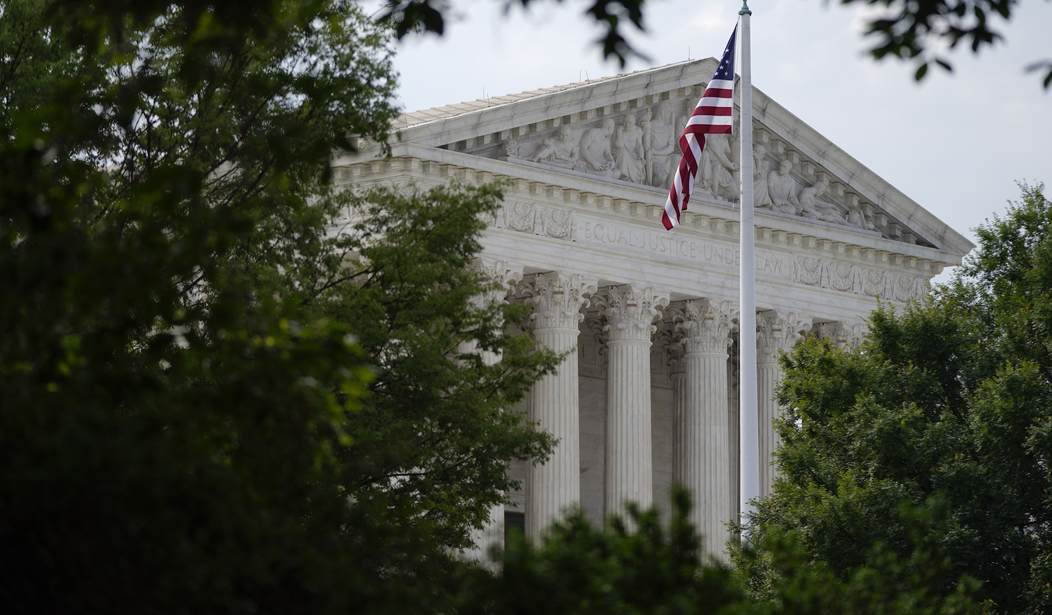Earlier on Monday, Guy highlighted his thoughts about whether Americans need to fear the U.S. Supreme Court taking away rights to contraception or same-sex marriage, as they have been made to fear by pro-abortion Democrats.
As Guy pointed to, which is always worth emphasizing, Justice Samuel Alito made clear in his official opinion (and in his draft) of Dobbs v. Jackson, which overturned Roe v. Wade, that the decision only affected abortion.
"None of the other decisions cited by Roe and Casey involved the critical moral question posed by abortion. Accordingly, those cases do not support the right to obtain an abortion, and the Court's conclusion that the Constitution does not confer such a right does not undermine them in any way," he wrote.
Justice Alito also clapped back at the dissent's talking points claiming that other rights would be affected, reminding those justices that when it comes to abortion and Roe, the destruction of what the 1973 decision referred to as a "potential life" is involved:
The most striking feature of the dissent is the absence of any serious discussion of the legitimacy of the States’ inter- est in protecting fetal life. This is evident in the analogy that the dissent draws between the abortion right and the rights recognized in Griswold (contraception), Eisenstadt (same), Lawrence (sexual conduct with member of the same sex), and Obergefell (same-sex marriage). Perhaps this is designed to stoke unfounded fear that our decision will imperil those other rights, but the dissent’s analogy is objectionable for a more important reason: what it reveals about the dissent’s views on the protection of what Roe called “potential life.” The exercise of the rights at issue in Griswold, Eisenstadt, Lawrence, and Obergefell does not destroy a “po- tential life,” but an abortion has that effect. So if the rights at issue in those cases are fundamentally the same as the right recognized in Roe and Casey, the implication is clear: The Constitution does not permit the States to regard the destruction of a “potential life” as a matter of any significance.
And, as Guy also pointed to, Justice Brett Kavanaugh in his concurring opinion raised a similar point.
Recommended
Significant substance from Justice Kavanaugh re: concerns over contraception, marriage & potential red states laws barring/limiting travel for abortions. pic.twitter.com/cp3pxIoUYq
— Guy Benson (@guypbenson) June 24, 2022
There are those who raise concerns about Justice Clarence Thomas' concurrence, in which he addressed the Court revisiting those other rights. But, it's worth reminding that Thomas' opinion is merely a concurrence.
In a solo concurring opinion, Thomas says the court should reconsider rulings that protect contraception, same-sex relationships, and same-sex marriage. pic.twitter.com/zcQNko6NVR
— Matt Ford (@fordm) June 24, 2022
A NPR/PBS NewsHour/Marist poll, which was also released on Monday, found that the American people are buying into this fear-mongering argument that the Court will next strike down such rights that they had previously granted to Americans.
A bullet point noted that, with original emphasis, "56% of Americans are concerned that the Supreme Court’s decision could also jeopardize the rights to contraception, same-sex marriage, or same-sex relationships. This includes a plurality of Americans (42%) who report they are very concerned that the Court will use the decision to reconsider other previous rulings."
Eighty-nine percent of Democrats and 55 percent of Independents have bought into this talking point. That so many Democrats have is not entirely surprising, since key party figures, including the president and vice president, as well as House Speaker Nancy Pelosi, have propagated this claim to gin up the base.
The vice president did so as recently as during her interview on CNN, as she claimed Thomas was "saying the quiet part out loud."
A USA Today-Suffolk University poll from last week, shortly before the decision was handed down, similarly ginned up such fears by claiming that "[s]ome legal scholars say a Supreme Court decision overturning Roe v. Wade would open the door to overturning other decisions that recognized personal rights."
Not surprisingly, respondents, when asked, were overwhelmingly against the Court overturning same-sex marriage, interracial marriage, and access to contraception.
Madeline also covered other results of the poll earlier on Monday, which found that "78% of Democrats say the court's decision makes them more likely to vote this fall, 24 points higher than Republicans." The poll's write-up also noted though that "Republicans are still favored at this point to take back the House this fall because of high inflation and gas prices." That being said, a majority of Republicans and Independents are also motivated by the decision, at 54 percent and 53 percent, respectively.

























